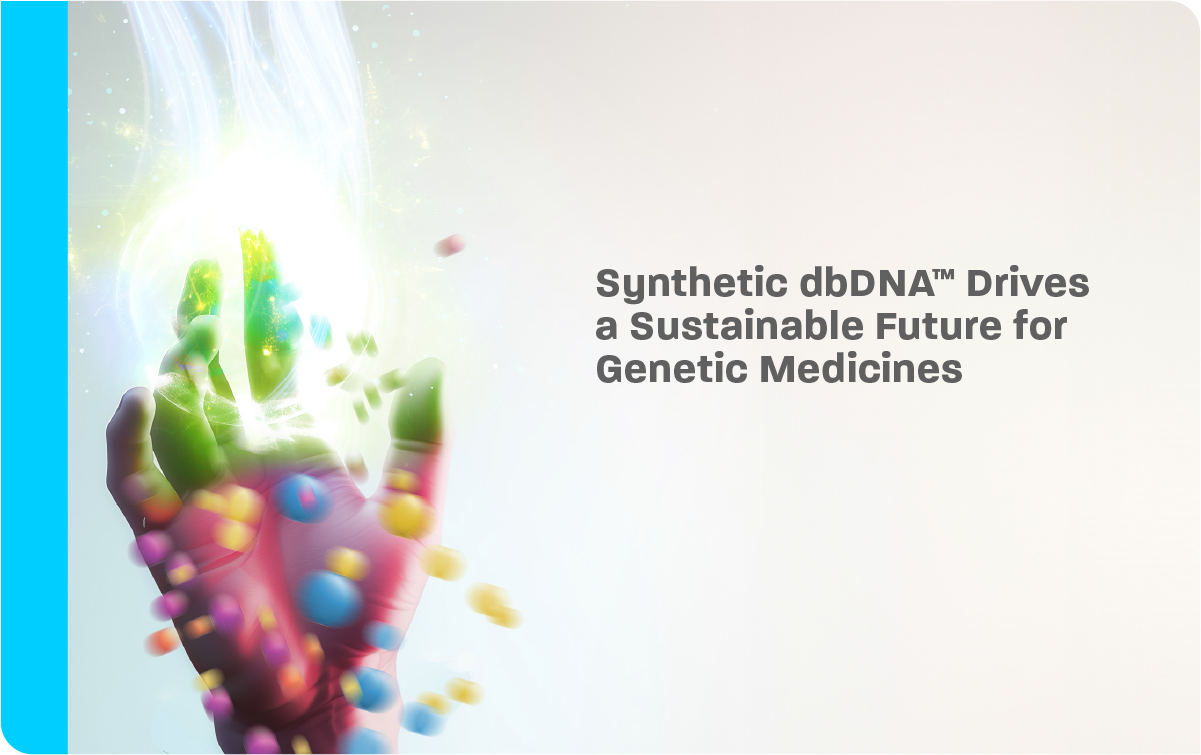Article – Synthetic dbDNA™ Drives a Sustainable Future for Genetic Medicines

As advanced therapies continue to transform the healthcare landscape, the need for sustainable manufacturing solutions grows more critical. Traditional plasmid DNA (pDNA) production presents costly, resource-intensive challenges, threatening scalability and accessibility in gene and cell therapies. Touchlight’s innovative dbDNA™ technology offers an enzymatic alternative that’s efficient, scalable, and environmentally sustainable.
This article explores how dbDNA™ is reshaping DNA manufacturing and setting new sustainability standards by reducing water use, eliminating bacterial impurities, and minimizing waste. Learn how this pioneering approach unlocks a more sustainable future for genetic medicine.
What You’ll Learn:
- The impact of traditional pDNA production on environmental sustainability
- How dbDNA™ enables more efficient, scalable, and environmentally friendly manufacturing
- Why sustainable DNA production is vital to advancing gene and cell therapies
Access the article here:
About doggybone DNA (dbDNA™)
Doggybone or dbDNA™ is linear, double stranded, covalently closed DNA vector which is produced in an enzymatic manufacturing process. It can incorporate a gene of interest from 600bp to >20kb making it very flexible to support a range of genetic medicines.